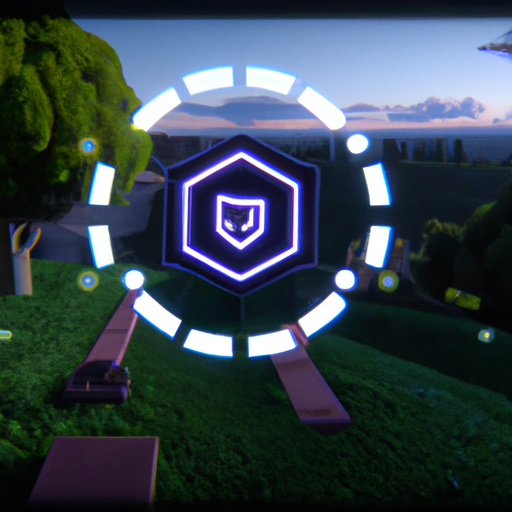Table of Contents
Virtual Land Ownership in Crypto Games

Virtual land ownership in crypto games has become a hot topic in the world of blockchain technology and gaming. With the rise of blockchain-based games like Decentraland, Axie Infinity, and The Sandbox, players now have the opportunity to own virtual land and assets within these virtual worlds. This article will explore the concept of virtual land ownership in crypto games, its benefits, challenges, and the future implications of this emerging trend.
The Rise of Virtual Land Ownership
In traditional video games, players do not have ownership rights over the in-game assets they acquire. However, with the advent of blockchain technology, players can now own digital assets, including virtual land, in a secure and transparent manner. Blockchain technology enables the creation of non-fungible tokens (NFTs), which represent unique digital assets that can be bought, sold, and traded on decentralized marketplaces.
Benefits of Virtual Land Ownership
- Ownership Rights: Players have full ownership rights over their virtual land and assets, allowing them to monetize their investments.
- Decentralization: Virtual land ownership in crypto games is decentralized, meaning that players have full control over their assets without the need for intermediaries.
- Interoperability: Some blockchain-based games allow players to transfer their virtual assets across different platforms, creating a seamless gaming experience.
Challenges of Virtual Land Ownership
- Scalability: As more players enter the virtual land market, scalability issues may arise, leading to higher transaction fees and slower processing times.
- Regulatory Uncertainty: The legal status of virtual land ownership in crypto games is still unclear in many jurisdictions, raising concerns about regulatory compliance.
- Security Risks: Virtual land ownership in crypto games is susceptible to hacking and fraud, posing risks to players’ investments.
Case Studies
One of the most popular blockchain-based games that offer virtual land ownership is Decentraland. In Decentraland, players can buy, sell, and build on virtual land parcels using MANA, the game’s native cryptocurrency. The value of virtual land in Decentraland has skyrocketed in recent years, with some parcels selling for millions of dollars.
Another example is Axie Infinity, a blockchain-based game where players can own and breed digital pets called Axies. Players can buy, sell, and trade Axies on decentralized marketplaces, creating a vibrant in-game economy based on virtual land ownership.
The Future of Virtual Land Ownership
Virtual land ownership in crypto games is still in its early stages, but it has the potential to revolutionize the gaming industry. As more players embrace blockchain technology and NFTs, virtual land ownership is expected to become more mainstream, leading to new opportunities for players, developers, and investors alike.
Conclusion
Virtual land ownership in crypto games is a groundbreaking concept that offers players ownership rights over their in-game assets. With the rise of blockchain-based games like Decentraland and Axie Infinity, virtual land ownership is becoming increasingly popular among gamers and investors. While there are challenges to overcome, such as scalability and regulatory uncertainty, the future of virtual land ownership looks promising. As the gaming industry continues to evolve, virtual land ownership is poised to play a significant role in shaping the future of gaming.
